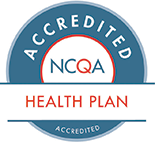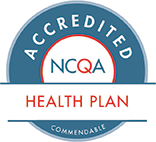FDA approves Boxed Warning about increased risk of blood clots and death with higher dose of arthritis and ulcerative colitis medicine tofacitinib (Xeljanz, Xeljanz XR)
[7-26-2019] The U.S. Food and Drug Administration has approved new warnings about an increased risk of blood clots and of death with the 10 mg twice daily dose of tofacitinib (Xeljanz, Xeljanz XR), which is used in patients with ulcerative colitis. In addition, the approved use of tofacitinib for ulcerative colitis will be limited to certain patients who are not treated effectively or who experience severe side effects with certain other medicines. We approved these changes, including adding our most prominent Boxed Warning, after reviewing interim data from an ongoing safety clinical trial of tofacitinib in patients with rheumatoid arthritis (RA) that examined a lower and this higher dose of the medicine.
The 10 mg twice daily dose of tofacitinib is not approved for RA or psoriatic arthritis (PsA). This dose is only approved for ulcerative colitis for initial treatment and for long-term use in limited situations. While the increased risks of blood clots and of death were seen in patients taking this dose for RA, these risks may also apply to those taking tofacitinib for ulcerative colitis.
Tofacitinib works by decreasing the activity of the immune system; an overactive immune system contributes to RA, PsA, and ulcerative colitis. Tofacitinib was first approved in 2012 to treat adult patients with RA who did not respond well to the medicine methotrexate. In RA, the body attacks its own joints, causing pain, swelling, and loss of function. In 2017, we approved the medicine to treat patients with a second condition that causes joint pain and swelling, PsA, who did not respond well to methotrexate or other similar medicines. In 2018, we approved tofacitinib to treat ulcerative colitis, which is a chronic, inflammatory disease affecting the colon.
Patients should tell your health care professionals if you have a history of blood clots or heart problems, and talk to them about any questions or concerns. Stop taking tofacitinib and seek emergency medical attention right away if you experience any unusual symptoms, including those that may signal a blood clot such as:
- Sudden shortness of breath
- Chest pain that worsens with breathing
- Swelling of a leg or arm
- Leg pain or tenderness, or red or discolored skin in the painful or swollen leg or arm
Do not stop taking tofacitinib without first talking to your health care professional, as doing so can worsen your condition.
Health care professionals should discontinue tofacitinib and promptly evaluate patients with symptoms of thrombosis. Counsel patients about the risks and advise them to seek medical attention immediately if they experience any unusual symptoms, including those of thrombosis listed above. Reserve tofacitinib to treat ulcerative colitis for patients who have failed or do not tolerate tumor necrosis factor (TNF) blockers. Avoid tofacitinib in patients who may have a higher risk of thrombosis. When treating ulcerative colitis, use tofacitinib at the lowest effective dose and limit the use of the 10 mg twice daily dosage to the shortest duration needed (See Additional Information for Health Care Professionals for more recommendations).
When FDA first approved tofacitinib in 2012, we required a postmarketing clinical trial in patients with RA on background methotrexate, to evaluate the risk of heart-related events, cancer, and infections. The trial is studying two different doses of tofacitinib (5 mg twice daily, which is the currently approved dose for RA, and a higher, 10 mg twice daily dosage) in comparison to a TNF blocker. An interim analysis of the trial’s results found an increased occurrence of blood clots and of death in patients treated with tofacitinib 10 mg twice daily compared to patients treated with tofacitinib 5 mg twice daily or a TNF blocker. Based on these results, the 10 mg twice daily treatment was stopped and patients were allowed to continue treatment on 5 mg twice daily.
This safety trial is ongoing. Patients in the 5 mg twice daily group and the TNF blocker group continue to be followed. FDA will reassess these safety issues when the trial has completed and final, verified data are available. We will update the public when additional information is available.
The interim results of the trial, as of January 2019, have identified the following:
- 19 cases of blood clots in the lung out of 3,884 patient-years of follow-up in patients who received tofacitinib 10 mg twice daily, compared to 3 cases out of 3,982 patient-years in patients who received TNF blockers
- 45 cases of death from all causes out of 3,884 patient-years of follow-up in patients who received tofacitinib 10 mg twice daily, compared to 25 cases out of 3,982 patient-years in patients who received TNF blockers
To help FDA track safety issues with medicines, we urge patients and health care professionals to report side effects involving tofacitinib or other medicines to the FDA MedWatch program, using the information in the “Contact FDA” box at the bottom of the page.
Questions?
If you can't find an answer, please feel free to contact our Customer Service Customer Service Customer Service
Questions?
If you can't find an answer, please feel free to contact our Customer Service
Employer web tools
Benefit Tracker
Check benefits, eligibility, incentive and utilization
Producer web tools
- Fully Insured Quotes (1-50)
- Equal Funding Quotes (25-99)
- Corporate reports
- eCommissions






Hello.
We have exciting news to share. ODS is changing its name to Moda Health.
Moda comes from the latin term "modus" and means "a way". We picked it because that's what we are here to do: help our communities find a way to better health.
Together, we can be more, be better.
Please select the state you live in, or the state where your employer is headquartered, so we can tailor your experience:

Hello.
Please select the state you live in, or the state where your employer is headquartered, so we can tailor your experience:
Changing your location to Oregon
You can return to your previous location in the site header.

